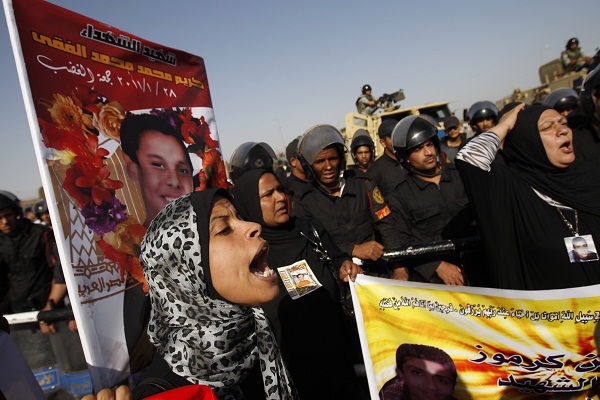The obituary of the Arab Spring has already been written by many commentators who see political Islamists as the only winners of unrest in the Middle East. The Arab Spring, it is said, has given way to an Islamist winter. With the Brotherhood installed in Egypt and Islamists from the Ennahda party driving through their agenda in Tunisia, this is a tempting conclusion to reach.
Yet, provisional results from the Libyan elections warrant a reassessment of what is really taking place in the region. Mahmoud Jibril, who served as Prime Minister in the aftermath of Gaddafi’s demise, will almost certainly secure a majority once the results are finalised later this week. His party, the National Forces Alliance, is not exactly secular by standards we might recognise and does draw some inspiration from Islam – but it can hardly be described as Islamist. For voters wanting expressly Islamist candidates there were more conservative options available such as the Brotherhood’s Justice and Development party.
It is true that the Brotherhood secured the lion’s share of seats in Egypt’s lower house of parliament while also capturing the presidency. These electoral strides need to be contextualised. Results from the parliamentary elections were clearly worrying. The Brotherhood won more seats than many observers had expected while the ultra-conservative Salafi party, al-Nour, also secured a number of the seats for itself. There was some course-correction in the presidential race. The Brotherhood’s candidate only scraped through because of Egypt’s convoluted electoral system. Ultimately, only about 20 per cent of Egyptians voted for him in the first round when an open field of alternatives was available.
In Tunisia it is also said that the Islamist Ennahda party has secured power. This is not strictly true. The party is certainly in the driving seat, but it did not secure a parliamentary majority. More seats are held by secular and liberal movements though divisions between them have created an opportunity for Ennahda to push through its agenda.
The contours of power in Syria remain in flux, but as my friend Michael Weiss points out:
As to the threat of an Islamist takeover of Syria following Assad’s fall, Western officials besotted with this deterministic lament ought to come to Boynuyogun and canvas opinion of this constituency.
Modest gains made by Islamist parties are not unique. In the aftermath of 9/11 a coalition of extremist parties in Pakistan formed an umbrella movement called the Muttahida Majlis-e-Amal and secured a majority in the North-West Frontier Province. They campaigned on the promise not to co-operate with American military forces who needed to cross through the Frontier to access Afghanistan. Yet, even in this most conservative of tribal areas, at the next elections, the MMA was thrown from office. Similarly, elections held in Bangladesh in 2008 saw the Jamaat e-Islami – the South Asian equivalent of the Muslim Brotherhood – destroyed as a parliamentary force.
This is not to dismiss legitimate concerns about the rise of Islamist parties in the Middle East. There are many challenges ahead – including a commitment to regional stability, ensuring the rights of minorities and women, and respect for human rights – which Islamist parties do not have a good track record of respecting.
However, the idea that Arabs are overwhelmingly voting for Islamist candidates is a misrepresentation. Things may yet get worse in the Middle East before they get better, but then revolutions are seldom clean or linear affairs – and in that context it is premature to dismiss the entire Arab awakening as an Islamist takeover. After all, before laïcité came the Reign of Terror.
Shiraz Maher
Has the Arab Spring given way to an Islamist Winter?






Comments